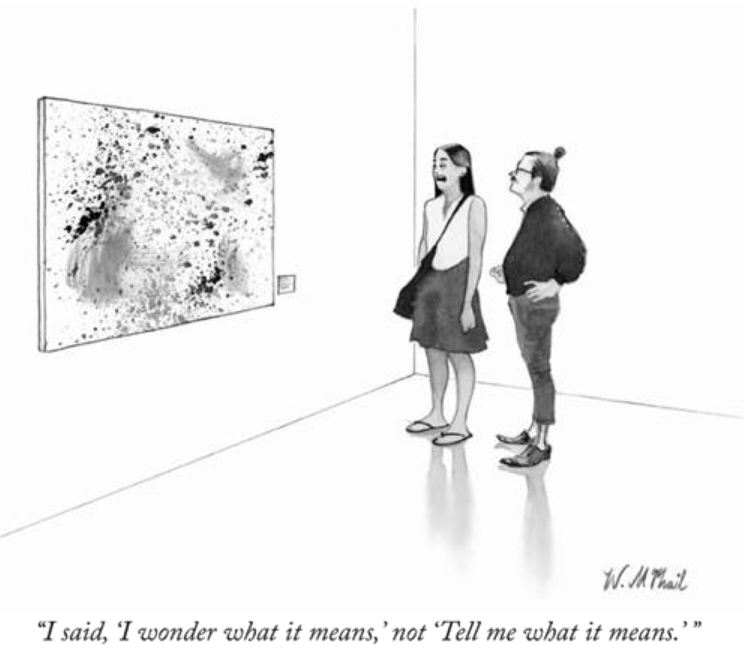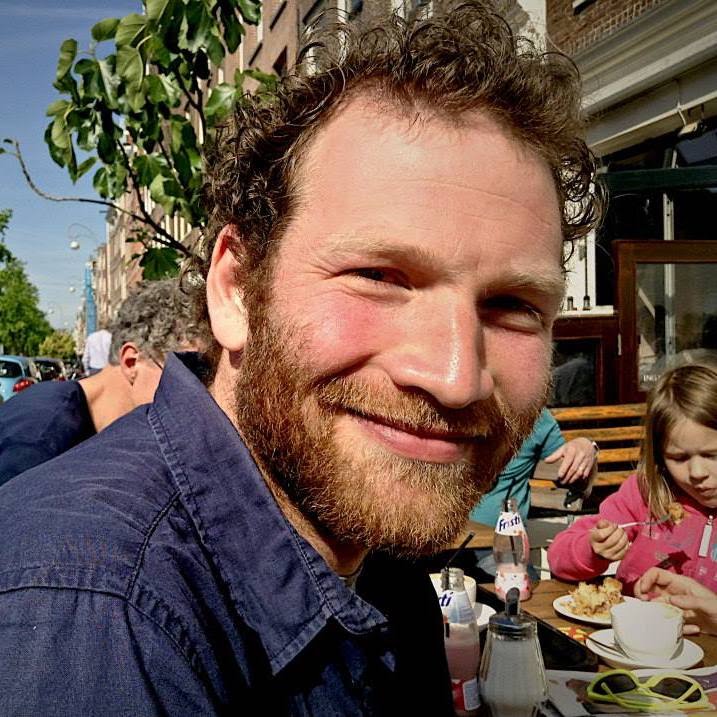
Logic and Conversation: Fall 2024
• Amsterdam • Master of Logic, University of Amsterdam
Traditionally, logic is concerned with the characterization of valid reasoning and argumentation, and therefore identifies the meaning of a sentence with its truth conditions. When analyzing the meaning of sentences in conversation, however, other notions become of interest as well. The focus of the course will be on inquisitive semantics, which enriches the traditional truth-conditional approach in ways that allow for a more comprehensive formal analysis of the meaning of sentences in linguistic interaction. The course introduces the basic inquisitive semantics framework, and discusses some current research in this area. This year, we will focus in particular on the semantics of attitude verbs like know, believe, and wonder. Why, for instance, is believe typically incompatible with interrogative complements (Sue believes who arrived is not a good sentence) and wonder typically incompatible with declarative complements (Sue wonders that Mary arrived is not good either) while know can take either type of complement (Sue knows who arrived / Sue knows that Mary arrived). This is not an artifact of English grammar, because we see the same pattern in other languages. Can such distributive constraints be explained based on the semantic properties of these verbs? Recent work has argued that we can indeed provide such explanations, and obtain a deeper understanding of attitude verbs more generally, if we adopt a formal semantic framework in which semantic content is not identified with truth-conditional content but also comprises inquisitive content.


Prerequisites
A good working knowledge of first-order logic is expected (see for instance the first three chapters of this book). It is also convenient to have some background in formal semantics (see for instance this book), though this is not strictly required. For students of the Master of Logic, this course is usually taken in the second year of the programme, after having completed Meaning, Reference and Modality and Structures for Semantics during the first year. Master and PhD students in Linguistics, AI, Cognitive Science and other programmes are also very welcome to take this course.
Textbook
The first part of the course uses a textbook. The book is open access, so everyone can download a pdf for free. If you prefer a hardcopy, you can order one at amazon or other online bookstores (this costs around 26 euros).
Grading
The grade for this course is based on a data collection exercise (pass/fail), two homework assignments (each counting for 20%), and a final paper (60%).
Assignments
- A latex template for drawing inquisitive semantics diagrams can be downloaded here.
- The data collection exercise was posted on Monday 28/10 and was due on Monday 11/11 before class.
- Assignment 1 was posted on Thursday 31/10 and was due on Monday 18/11 before class.
- Assignment 2 was posted on Monday 18/11 and was due on Thursday 5/12 before class.
Instructions for final paper
The final paper must written individually. Please discuss possible topics with us early on in the course. Topics should be determined by November 28 at the very latest and should be communicated to us by that date. A preliminary version of the paper is to be presented during the last lecture on December 12, and the final version is due on December 20, 6pm. See Appendix B of the textbook and the inquisitive semantics website for pointers to some relevant literature, which may help in finding an interesting topic. We strongly encourage students to discuss their projects with each other and give each other feedback.
Grading criteria for final paper
The grading criteria for the final paper are the same as for a master thesis, though of course here we do not expect as much as in the case of a thesis.
- Correctness All claims should be correct, precisely formulated and carefully argued for.
- Writing The paper should be well-structured; the writing should be clear and concise. Typically, papers are around 10 pages. There is no official upper or lower bound, but quality is preferred over quantity: a single idea or result that is clearly explained in 7 pages is better than a collection of multiple half-baked ideas discussed in 15 pages.
- Difficulty Both conceptual and technical difficulty are taken into account.
- Originality The paper should contain some new results. This can take many forms: establishing previously unknown properties of one of the logical systems discussed in class, or closely related ones; further enriching the theories discussed; testing the predictions of the theories; developing new applications; developing a theory of your own that solves some of the remaining challenges for the theories discussed.
Late policy
Deadlines are strict. Late submissions will be accepted until three days after the deadline, but 0.5 points will be subtracted from the grade per day.
Schedule
Mondays 11.00-13.00, Thursdays 11.00-13.00
| # | Date | Room | Material | Content | Lecturer |
|---|---|---|---|---|---|
| The inquisitive semantics framework | |||||
| 1 | 28/10 | L1.10 | Book chapter 1, MECORE website | Course overview, motivation, and discussion of data collection exercise (slides Floris, slides Tomasz) | Floris + Tomasz |
| 2 | 31/10 | L2.07 | Book chapter 2 | Basic notions in inquisitive semantics (slides) | Floris |
| 3 | 4/11 | L1.10 | Book chapter 3 | Discuss progress on data collection exercise / Introduce main operations on propositions in inquisitive semantics (slides) | Floris + Tomasz |
| 4 | 7/11 | L2.07 | Book chapter 4 | Inquisitive semantics for a first-order logical language (slides) | Floris |
| 5 | 11/11 | L1.10 | Github repository | Computational tools for analyzing attitude verb data (slides) | Tomasz |
| 6 | 14/11 | L2.07 | This class will be canceled because of a national demonstration against the government's proposed budget cuts in education and academia. Please consider joining the demonstration in Utrecht and signing the petition. | ||
| 7 | 18/11 | L1.10 | Discussion of the results of the data collection exercise: everyone presents an overview of their own findings, Tomasz presents some preliminary comparative results | Students + Tomasz | |
| 8 | 21/11 | L2.07 | Book chapter 5-6 | Inquisitive semantics for declarative and interrogative sentences in English (slides), for the exactly one implication of alternative questions see Roelofsen 2017 and Westera 2019. | Floris |
| 9 | 25/11 | L1.10 | This class will also be canceled because of a second national demonstration against the government's proposed budget cuts in education. Please consider joining the demonstration in The Hague and signing the petition. | ||
| 10 | 28/11 | L2.07 | Book chapter 8 | Inquisitive semantics for attitude verbs (slides) | Floris |
| 11 | 2/12 | L1.10 | Book chapter 9 | Comparison with other frameworks (slides) | Floris |
| Recent and ongoing work on the semantics of questions and attitude verbs | |||||
| 12 | 5/12 | L2.07 | Theiler et al. 2018, Uegaki and Sudo 2019 | Picky predicates: why predicates like *believe* and *hope* don’t like interrogative complements (slides Floris, slides Tomasz) | Floris + Tomasz |
| 13 | 9/12 | L1.10 | Klochowicz 2022 | Universal constraints on the semantics of responsive predicates: are there verbs that mean *know* when combined with a declarative clause and *wonder* when combined with an interrogative clause? (slides) | Tomasz |
| 14 | 12/12 | L2.07 | Project presentations: Dor Josef Justina Martyna Morgane Quint Wai Yuan |
Students | |
| 18/12-20/12 | CWI | Bonus: The
Amsterdam Colloquium, one of the main international conferences in Formal Semantics, with keynote presentations by:
Ivano Ciardelli (18/12 at 9.30) Veneeta Dayal (18/12 at 14.30) Liz Coppock (19/12 at 9.30) Angelika Kratzer (19/12 at 20.30) Wataru Uegaki (20/12 at 9.30) (among others) |
|||